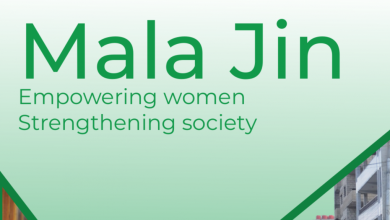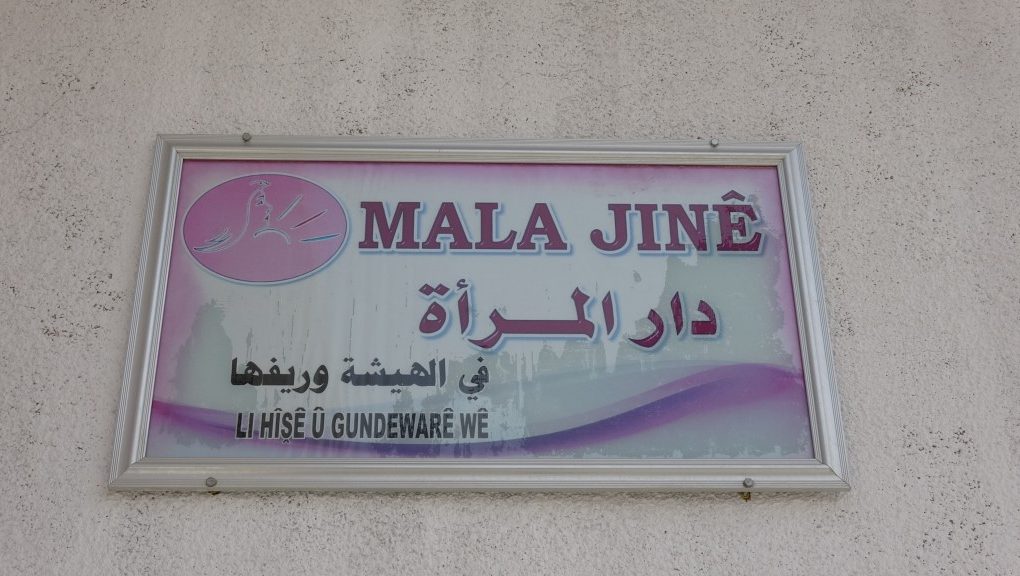Women’s Laws in Rojava – Northern Syria

The concept of masculinity in our society has led to many political, social, economic, cultural and psychological problems— most notably the oppression and marginalization of women. Under this system, women have been deprived of their rights and made vulnerable.
In addition to such inherited traditions and concepts, which impeded the progress of women and limited their aspirations for a better future, many laws and institutions also threatened women’s freedom. All of these obstacles— such as divorce by a man’s individual will, forced marriage, polygamy, and countless other oppressive institutions— reflected poorly not only on the condition of women, but on the status of our society as a whole.
Based on our belief in the importance of the role of women in the family, which constitutes the basic nucleus of society, we believe that women’s freedom must be the basic guarantee for rebuilding democratic families and a free, democratic society. Development in any society is best achieved by activating the role of women and ensuring their participation in the construction and progress of their communities. Therefore, we believe that women must continue their struggle to achieve guarantees that safeguard their dignity. They must take their freedom and their right to control their lives and their children, and must no longer accept any form of marginalization. A women’s liberation movement is urgently needed to confront all forms of backwardness, violence and murder.
Ensuring women’s rights and freedoms in this way is the main goal of the Democratic Self-Administration. As such, the Administration must solve all outstanding issues that women face in society, improve their situation, secure their lives, defend them against persecution and violence, and ensure their legitimate rights.
Under these circumstances, we decided to develop a set of basic principles and general provisions relating to the status of women, in order to ensure equality and build a free and democratic society.
Basic Principles:
1. Fighting the reactionary authoritarian mentality in society is the duty of every individual in the areas governed by the Democratic Self-Administration.
2. Equality between men and women shall be guaranteed in all aspects of public and private life.
3. Women have the right to be nominees, nominate, and take all political positions.
4. All institutions must commit to the principle of participatory management.
5. Women have the right to form political organizations; social, economic, cultural and rightful defense organizations; and other organizations, including all those that do not violate the Social Contract principles.
6. A representative of women’s organizations and human rights organizations is to be present as an observer, at prior invitation from the Council, when discussing laws issued in exceptional cases in the Legislative Council.
7. When issuing laws relating to women in the Legislative Council, the will of women shall be taken into account.
8. Women and men shall be equal in matters of work and payment.
9. The testimony of a woman and the testimony of a man shall have equal legal value.
10. No woman or girl may be married without her consent.
11. Cancel dowry because it considers as of material value to posses the woman and replaced by the participation of two parties to insure a participatory life .
12. Marriage contracts shall be a civil matter.
13 . Polygamy shall be prevented.
14. Both parties in a marriage are entitled to seek separation, and a couple cannot be divorced by individual will.
15. Men and women are to be equal in all matters of inheritance.
16. Prevent banning the girl from marrying.
17. Killings under the pretext of “honor” are a full-fledged physical, moral, and legal crime, punishable by penalties stipulated in the penal code as the crime of killing, accidentally or deliberately.
18. Impose strict and equal punishment to the perpetrator of infidelity on both sides.
19. Human trafficking, especially of children and women, is to be criminalized and punished harshly. This includes all types of trafficking, including, but not limited to, sexual exploitation, child labor, and trading in human organs.
20. Violence and discrimination against women is to be prevented. Gender-based discrimination is a crime punishable by law. The Democratic Self-Administration should fight against all forms of violence and discrimination through the development of legal mechanisms and services that provide protection, prevention and treatment for victims of violence.
21. The Democratic Self-Administration shall ensure the democratic rights of children and protect them from all forms of violence and exploitation.
General Provisions:
22. Women and men have equal rights under the nationality law.
23. The Democratic Self-Administration ensures for each individual and family, especially children and women, health and social insurance, as well as basic requirements for living in a free and dignified life; as well as providing necessary protection for widows and older women.
24. Girls may not marry before the age of eighteen.
25. Women have the right to custody of their children until they reach the age of fifteen, whether the mother is married or not. After this, the children have the right to choose, and the duty of the two parents is to secure housing and alimony for their children.
26. Children under the age of fifteen who wish to travel require permission from their parents.
27. When women’s and family issues are taken to court, a representative from the women’s center must be present. Her opinion shall be non-binding and advisory.
28. Working women shall have paid maternity leave for up to three births.
29. In the case of divorce, the wife has the right to take all gold jewelry and other items purchased for her for the wedding, or their equivalent value, whether these items are in her possession or have been disbursed by her husband.
30. The Democratic Self-Administration shall establish centers for pregnant and lactating women who have been sentenced for a crime to spend the duration of their sentences, taking into account their condition and the condition of the fetus and newborn.



